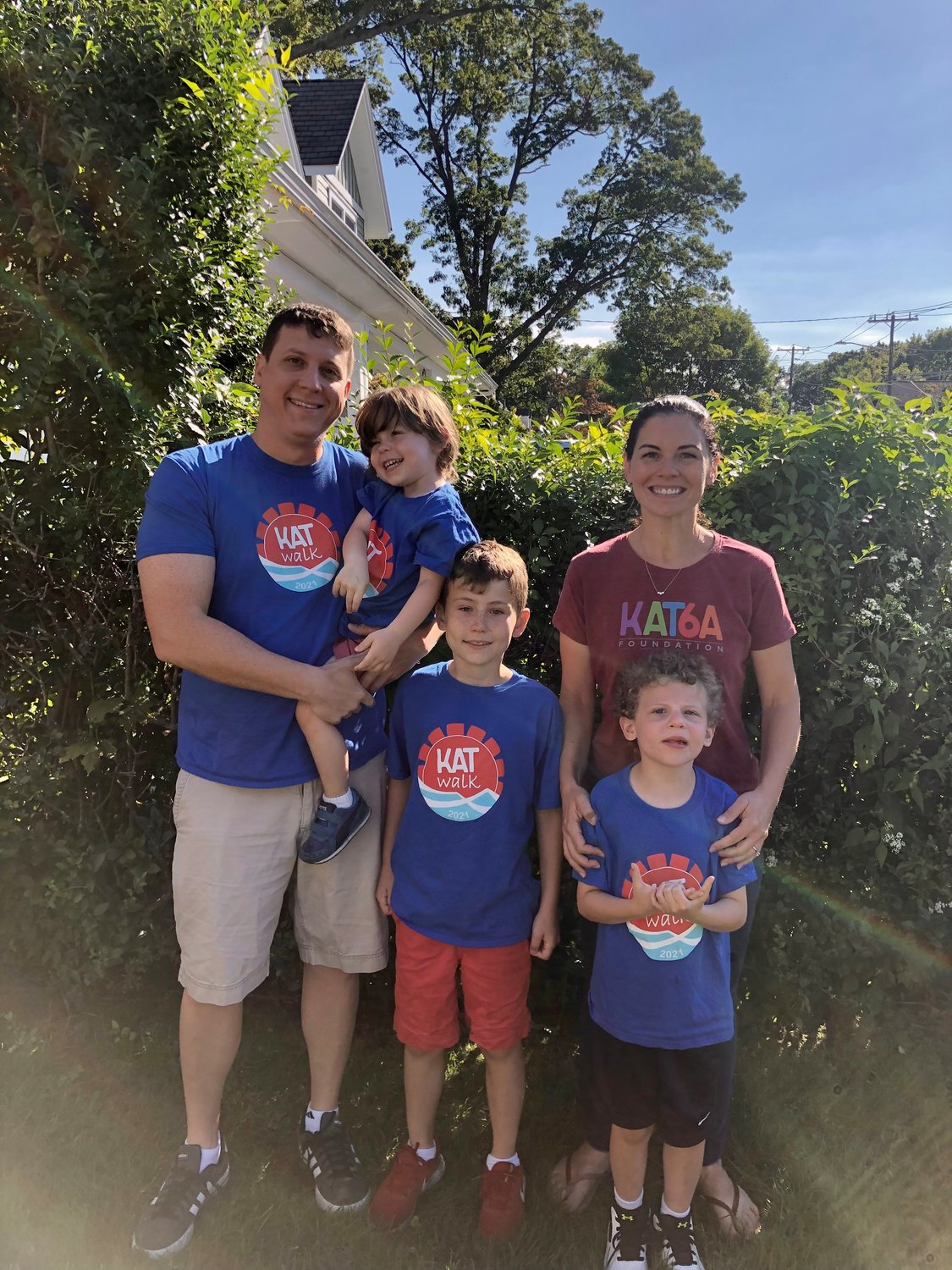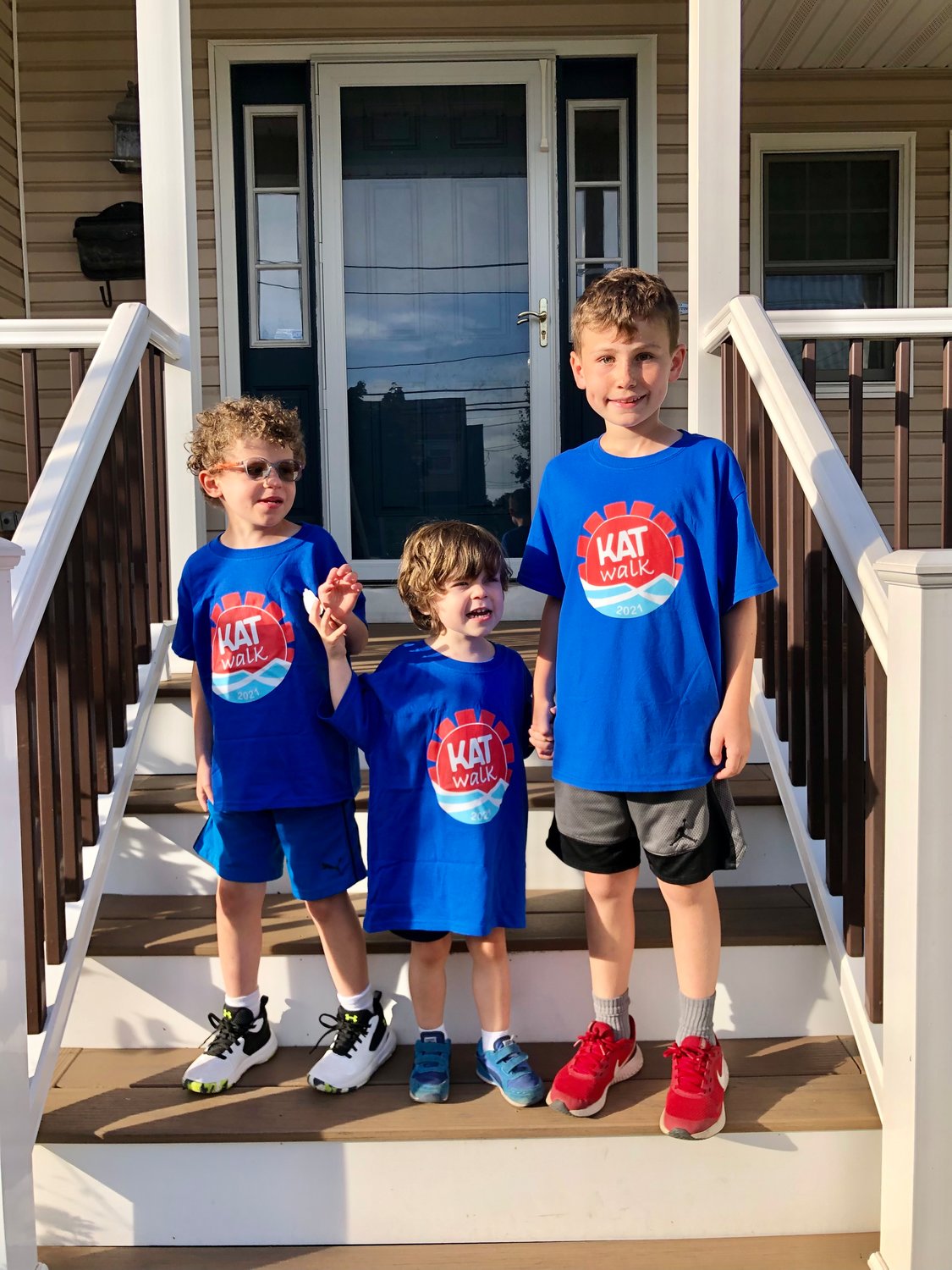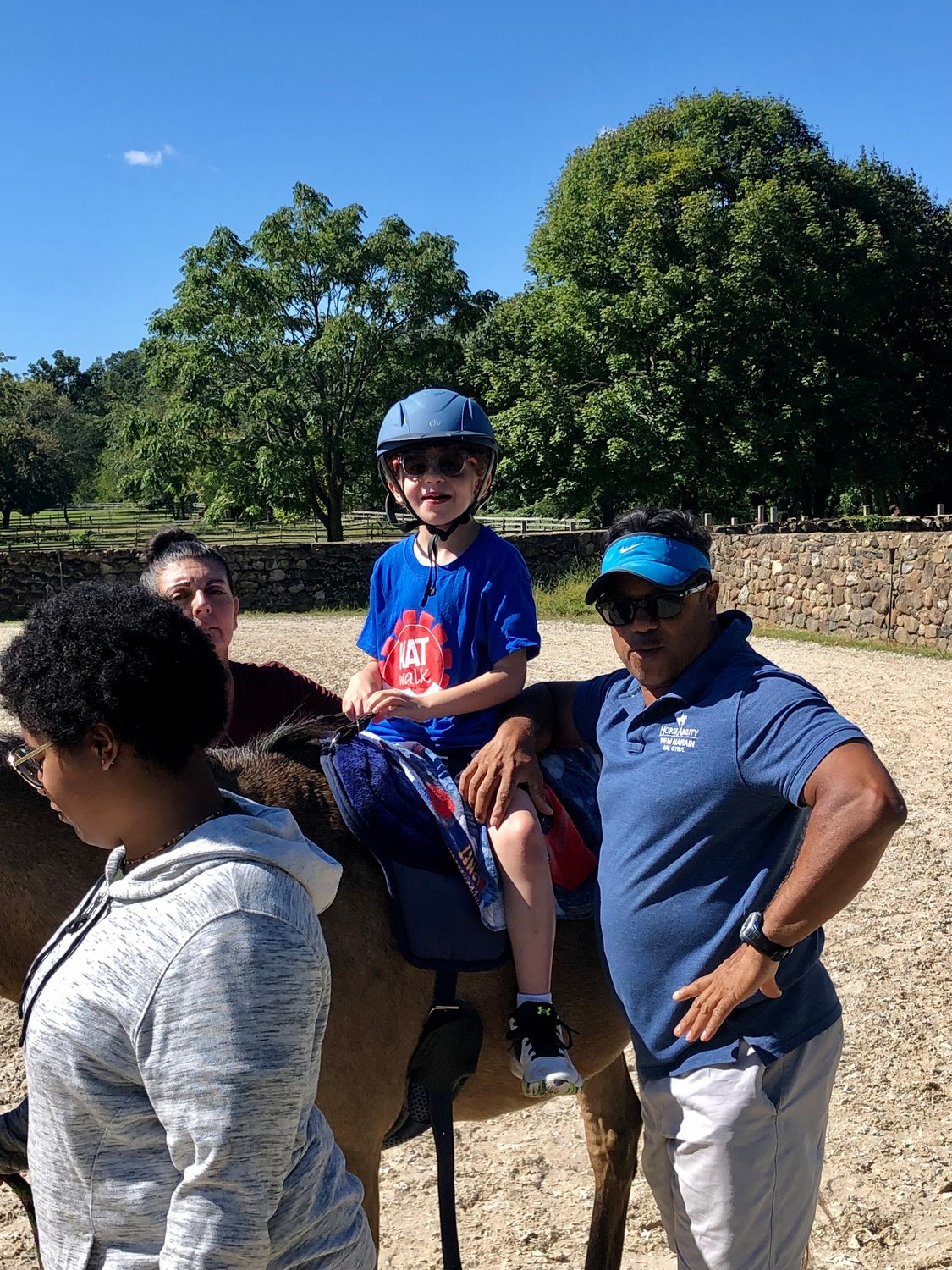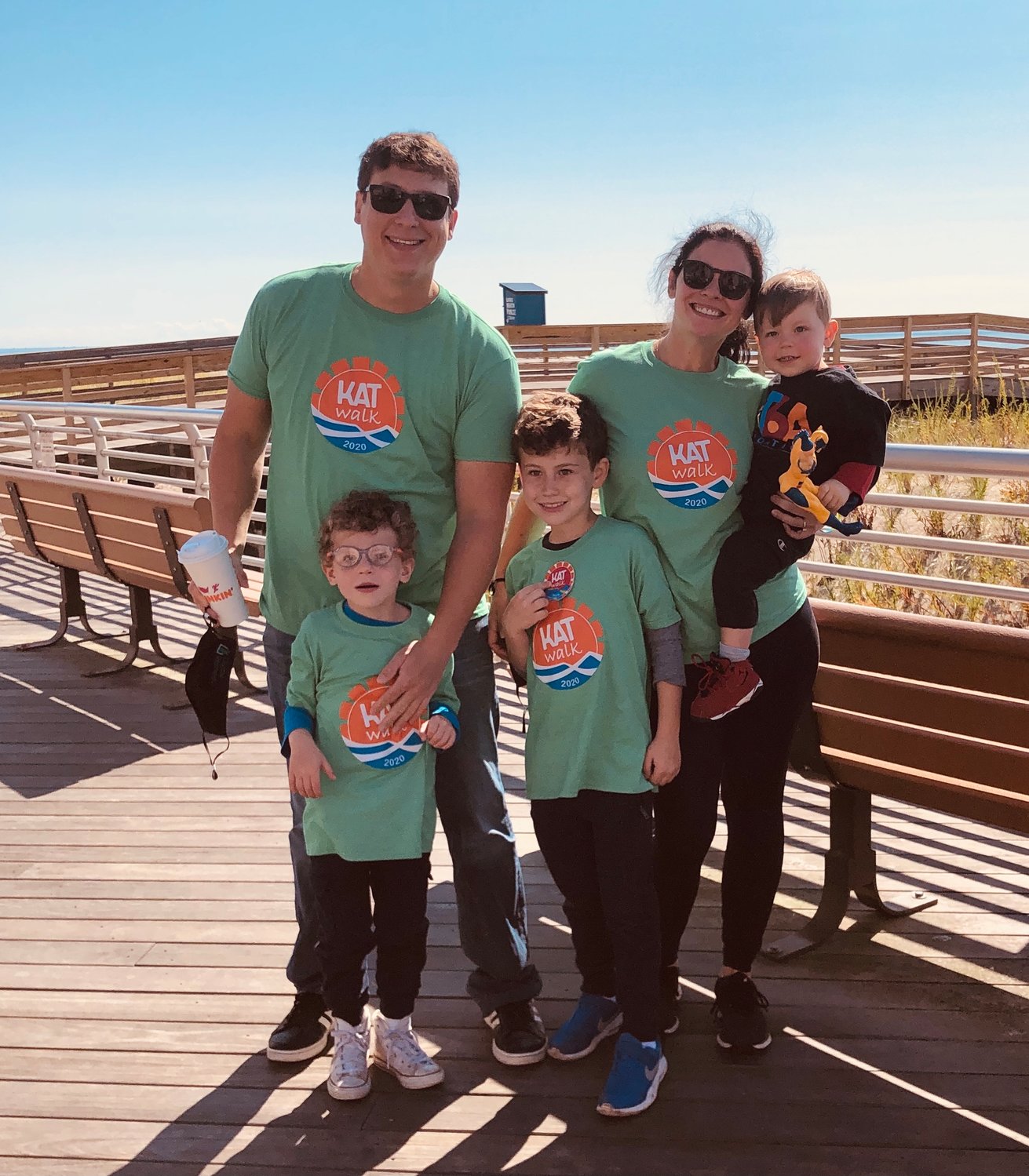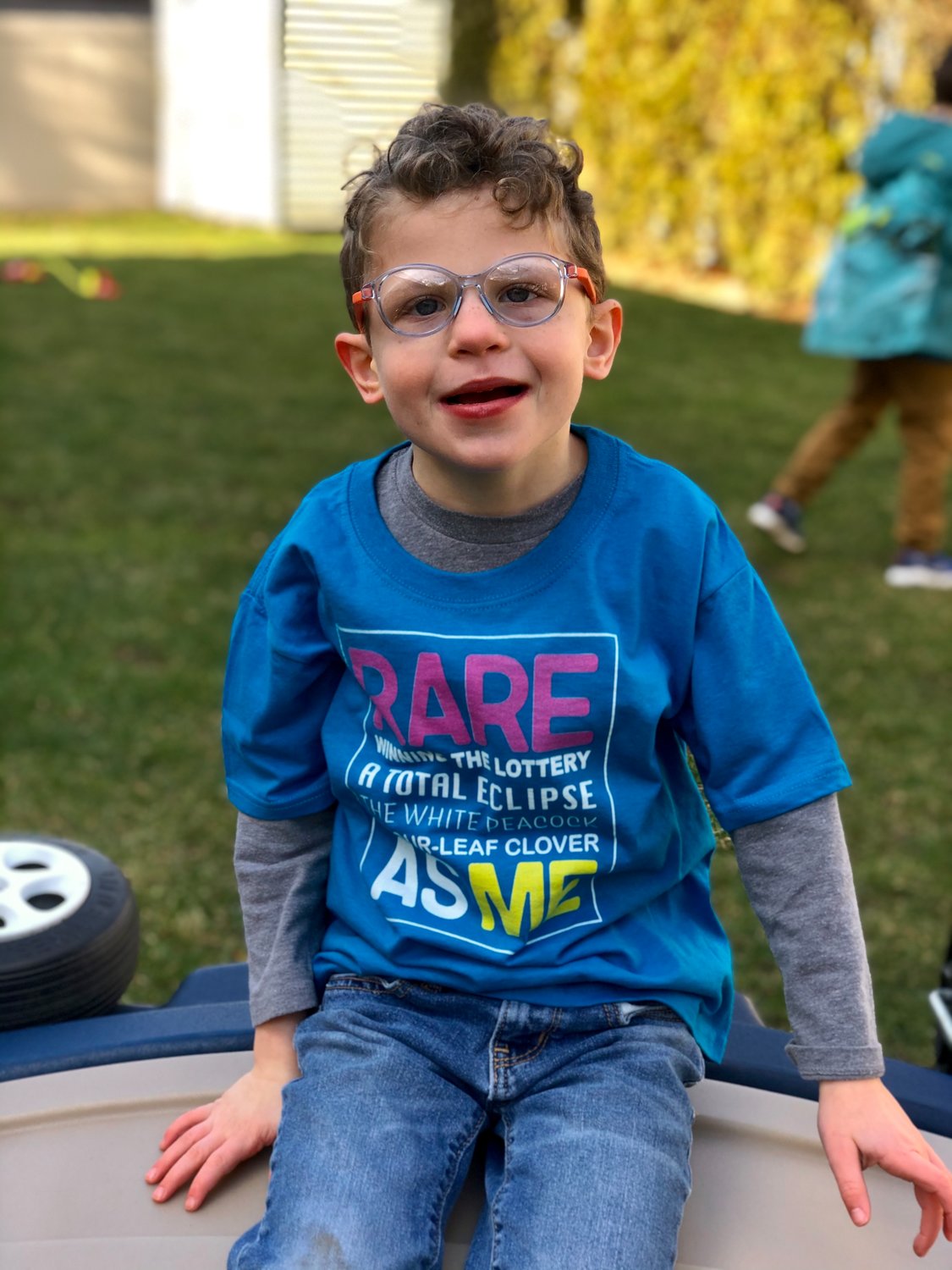Thursday, April 18, 2024
Local boy fights rare disorder
Bellmorite diagnosed with KAT6A Syndrome, first in the state
In 2016, Bellmorite Will Reitzen was the first child in New York to receive a diagnosis of KAT6A syndrome, caused by a genetic mutation. According to his mother, Aimee Reitzen, the disease was discovered in 2013, and roughly 350 cases are now known.
In prior years, gene mapping — a fairly new practice — was highly expensive, costing families upward of $20,000. The cost has dropped in recent years, however, making the testing much more widely accessible.
Symptoms are wide-ranging and can include developmental delays, speech and language deficits, feeding difficulties, heart defects and vision problems. Less common symptoms include seizures, frequent infections and skull abnormalities.
Reitzen encourages parents who suspect their child may have a disability to seek out genetic testing, called whole exome sequencing. In most cases, KAT6A syndrome is not inherited from either parent.
A Bellmore family is raising awareness of their 6-year-old son’s rare genetic disorder — it’s so rare, his mother said, that her son is the first to receive the diagnosis in New York state.
Will Reitzen has KAT6A syndrome, a rarely identified genetic mutation that causes developmental disabilities. Recent advancements in genetic research have allowed the mutation to be identified, leading to the same diagnosis for roughly 300 people around the world since 2020.
Will’s mother, Aimee, has helped publicize the disorder since he was diagnosed in 2016. She had a hand in creating the KAT6A Foundation, which helps families around the world who are dealing with the syndrome by connecting them to resources they need.
The Reitzen family will host an annual fundraising walk at Wantagh Park this Saturday. Contributions can be made at https://donate.kat6a.org/event/katwalk-2021/e343921.
Aimee said she started noticing a delay in Will’s learning and fine motor skills early on, but he didn’t quite fit a diagnosis of cerebral palsy, autism or other known disabilities. He underwent several tests, but it wasn’t until the family decided to map his DNA that they found something conclusive: a mutation in the KAT6A gene. The gene makes the KAT6A protein, which helps control the production of proteins from other genes. A change in the KAT6A gene can cause a range of health and developmental problems (see box).
“Pretty much every child has a significant speech impediment,” Reitzen said of those who have been diagnosed with the disorder.
“I give Aimee a lot of credit — she got an actual diagnosis based on blood work,” said Carol Blum, a Merrick resident for 35 years who was an early-intervention therapist for Will, and attends and supports the Reitzens’ walk every year. “There’s a lot of misdiagnosing out there.”
The first case was discovered in 2013 in Washington, D.C., according to Reitzen. When the Reitzens learned of Will’s diagnosis, they were told he was only one of 10 children in the world to have KAT6A syndrome. “I felt like I was in the Twilight Zone,” Aimee said.
She was given two early studies on the disorder, and the family’s unusual medical journey began. They were advised to learn sign language to help Will communicate.
Digging deeper into what little was known about the disorder, Aimee discovered a KAT6A support group with families all over the world, including Canada, the United Kingdom and Australia, as well as the U.S. West Coast. She found that Will was closer to the 30th diagnosis.
Some of the children she met through the support group were severely disabled, needing wheelchairs and feeding tubes. Others were able to ride bikes and play like typical children. “I knew at that moment, we’re gonna be OK,” Reitzen said. “We have hope for our future. What was handed to us in a genetics report isn’t our destiny.”
A half-dozen families founded the KAT6A Foundation, which has now expanded to include research-based professionals on its board of directors. “It’s honestly amazing what we’ve done,” Reitzen said. “In 2016, when my son was diagnosed, I could find nothing online about this. It was really scary, and isolating.”
Reitzen crafted the foundation’s website, and there is now research taking place around the world. There is also an iPad grant initiative, which comes with communication software pre-installed. The software helps those with speech and motor impairments communicate with their family members and caretakers.
“She’s done so much to bring [KAT6A] to the forefront and to find out what’s available out there,” Blum said of Reitzen. “She’s picking the brains of those that have walked before her, and she’s supporting those still in that fog of what is going on with their kid.”
The Reitzen home is now equipped with a therapy gym and other equipment designed for Will’s use. And one of his favorite activities is horseback riding. “When he’s on top of the horse, Will is in charge,” said Rem Narain, the boy’s occupational therapist at Horseability in Westbury. “We guide him, of course, but he’s controlling everything. It’s a moment where he doesn’t have to worry about anything.”
“We’ve been really lucky to supply Will with everything he needs,” his mother said.
KAT6A syndrome also makes children excitable and happy, and Will charms anyone he meets. “Will has always been so adorable,” Blum said. “Will has certainly far surpassed all expectations.”
At his age, Will faces developmental challenges, but he can communicate and play with his parents and his two brothers, Andrew and Matthew, and he attends the special education program at Martin Avenue School in the North Bellmore School District.
Today there are about 350 known cases of KAT6A syndrome, but Aimee Reitzen says there could be tens of thousands of undiagnosed cases. “This is very commonly misdiagnosed as cerebral palsy or autism,” she said.
She said she encourages parents to do genetic testing, which is more often covered by health insurance now. As more cases are discovered, there will be more research as well.
"Our biggest goal is to find a treatment,” Aimee said.
HELP SUPPORT LOCAL JOURNALISM
The worldwide pandemic has threatened many of the businesses you rely on every day, but don’t let it take away your source for local news. Now more than ever, we need your help to ensure nothing but the best in hyperlocal community journalism comes straight to you. Consider supporting the Herald with a small donation. It can be a one-time, or a monthly contribution, to help ensure we’re here through this crisis. To donate or for more information, click here.
Sponsored content
Other items that may interest you

